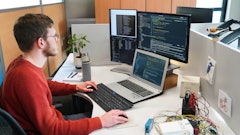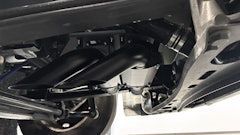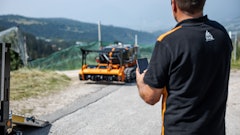Electric vehicles for construction, agriculture and mining will be a $81 billion market in 2027. Komatsu, John Deere, Caterpillar, and others manufacture the big vehicles - mainly hybrid - while other manufacturers offer smaller, pure-electric versions.
Pure electric is a legal requirement indoors. Outdoors, fuel saving and better performance attracts. Cranes and man lifters have many applications. Their production volumes are larger than most people realize. So it is with the electric versions set for 165,000 to be sold in 2027.
This is an industry about to change radically. For example, in mining, over 90% of the worlds mines are open cast. They are often in remote places up to 4,000 m above sea level, where shipping diesel can cost more than buying it.
Consequently, there is now a move to have 350 kW giant haul trucks working the floor and separately the top of the mine with electric rail-veyors lifting the ore from bottom to top.
In an all-electric solution new pollution laws can be met, image improved and money saved, the electricity coming from the mine's own wind turbines and photovoltaics. Battery swapping and fast charging of those batteries means 350 kWh batteries suffice - big but no larger than those in other EV sectors.
The new report available from Reportbuyer explains all this and gives detailed forecasts, comparisons and assessments. It shows how mines will electrify much more but only after the current bust period of the boom-and-bust that characterizes this industry. It shows why the ubiquitous tractor in agriculture will, at last, be electric in volume quantities by 2027 and how new forms of vehicle design are coming.
Benchmarking from the 46 categories of electric vehicle that IDTechEx forecasts, the report explains what new technologies will arrive and why.
Supercapacitors, new power components, greater modularisation and integration will transform this industry. The report draws on interviews and results of many recent conferences on these sectors.





